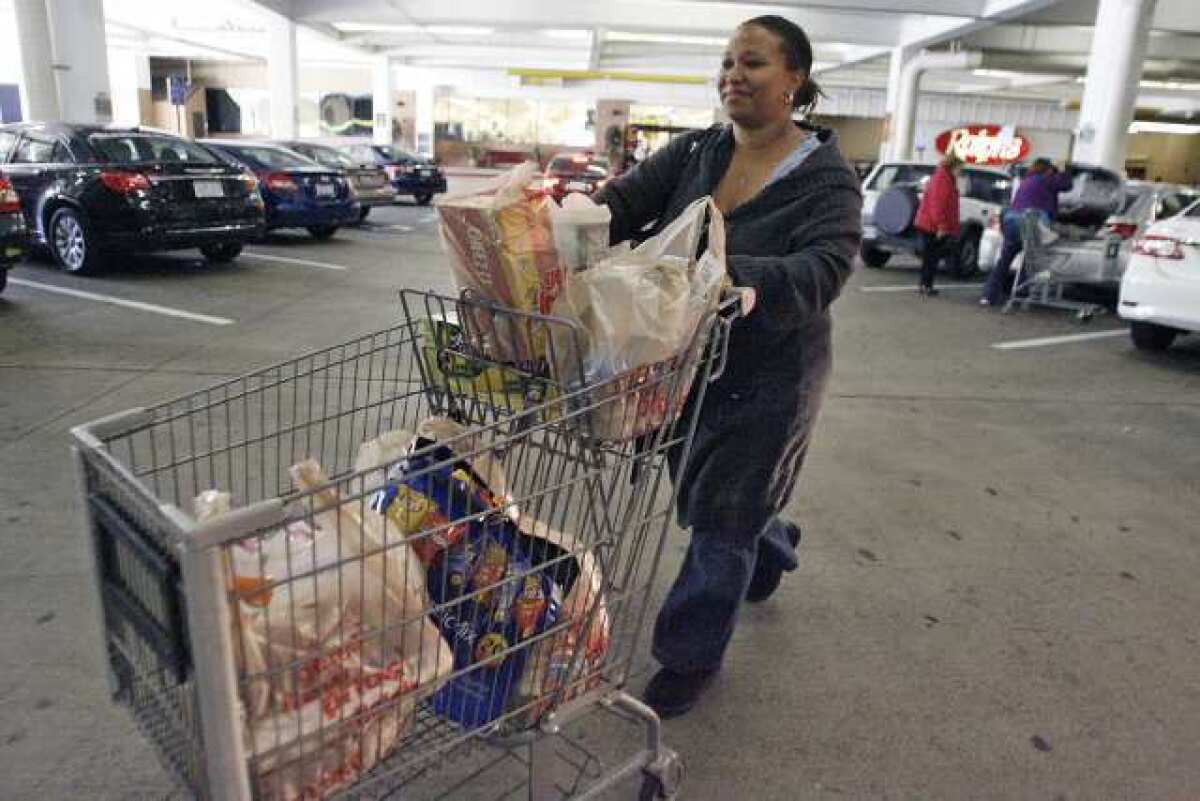Council is united against plastic

Glendale is set to become the next major city in Los Angeles County to ban plastic bags at grocery stores after City Council members on Tuesday were unanimous in their support of the new law.
“It’s a no-brainer,” said Councilman Dave Weaver. “It’s inevitable. It’s got to happen. We’re just going to join in the crowd.”
Glendale will be following in the footsteps of cities that have enacted similar rules, including Los Angeles, Pasadena and Laguna Beach.
But Councilwoman Laura Friedman said the city shouldn’t stop at grocery stores, suggesting that the ban be extended to other retailers in the future.
“Grocers are a great step. Why not some of the other stores? Why not hardware stores?” Friedman said.
Despite the positive response from those on the dais, the ordinance must come back next week for final approval.
Glendale’s proposed ordinance is modeled off a countywide ban that took effect in 2011, but the city’s ban would also include farmers markets and all city-sponsored events, as well as any event held on city property.
Once given final approval, the ban will affect 164 stores within city limits in two phases. In six months it would affect large grocery stores that make at least $2 million in gross annual sales, retailers with at least 10,000 square feet that include a pharmacy, and farmers markets.
Smaller grocers, liquor stores and city events would have 12 months to comply.
Citations would be issued based on complaints filed by the public. After a first-time written notice, violators would be subject to a $100 fine, a $200 fine after the second offense in one year and $500 for each additional violation within one year, according to the proposed ordinance.
Public Works Director Steve Zurn said that since the county ban took effect in July 2011, there have been few infractions.
Mayor Frank Quintero said in an interview Monday that he thought it would be “a small measure that will lead to great results.”
The proposed ordinance would also add a 10-cent charge on paper bags. Retailers could use that money to recoup costs and educate customers about reusable bags, Zurn said.
Some council members at first wanted to nix the 10-cent charge, but backed down when store representatives supported the fee.
Sarah Sheehy, spokeswoman for the California Grocer’s Assn., said without the charge, retailers would be eating the costs of paper bags.
“It’s a hugely important part of the ordinance,” she said.
Several large retailers, such as Ralphs and Albertsons, have supported the ban in the past, preferring a similar statewide law rather a city-by-city patchwork.
Mark Sheridan, manager of the popular Montrose Farmers Market, also supports the change.
“It’s a challenge, but one that’s necessary for the community,” he said, adding that the market may take a cue from Trader Joe’s and other retailers by developing its own reusable bag.
Despite the proliferation of plastic-bag bans across the Southland, Donna Dempsey, a spokeswoman for the American Progressive Bag Alliance, said the laws are misguided since reusable and paper bags have their own set of environmental issues.
“It’s very shortsighted,” she said Monday.
Customers who participate in state-funded supplemental food programs would be exempt from the 10-cent charge on paper bags.